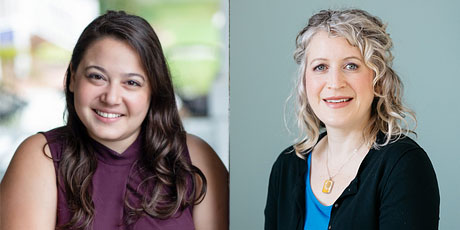by Dr. Ilana Berman and Kelly Sullivan
What is RPC?
“Caring for Children Who Have Experienced Trauma: A Workshop for Resource Parents” is often referred to as the Resource Parent Curriculum, or RPC. This program is specifically designed for resource parents to learn parenting strategies they can use immediately with the children in their home who have experienced trauma. The curriculum was developed by over 30 experts at the National Child Traumatic Stress Network and is delivered by skilled facilitators including mental health professionals, child welfare professionals, and individuals with lived experience.
Typically, the workshop is conducted in two- hour weekly meetings for eight weeks. This allows participants time to reflect on and apply the concepts to a child in their home, bringing back real- life experiences to address within the group.
How is RPC beneficial for caregivers?
While other trainings for resource parents may include information about trauma, RPC provides a space for a “deep dive” into this complex subject. The curriculum includes information on how trauma impacts social, emotional, and neurobiological (brain and body) development. This workshop also provides a unique opportunity to understand challenging behaviors and the emotional reactions (e.g., anxiety, guilt, grief ) of youth.
After the workshops, parents often report experiencing a shift in how they think about their children’s emotional and behavioral responses. This helps them feel more informed and in control about how they respond to the youth in their care. RPC also provides a meaningful space for caregivers to explore their own emotional experiences throughout their caregiving journey. For example, parents often find themselves reflecting on their own childhood experiences and their impact, as well as on how they have parented in the past.
How RPC can help with placement stability?
Workshops are designed to be empowering and supportive and to provide parents with strategies that help children heal from the effects of trauma. We have received feedback from past participants who refer to RPC as the “most powerful training they have ever experienced” and some have opted to take the workshop multiple times.
Studies have shown that caregivers who have participated in a workshop feel more confident in their ability to parent their child and that they are more willing to care for a child with disruptive behaviors. We believe these results, ultimately, lead to improved placement stability. It’s natural to approach an unfamiliar program with hesitation, yet the majority of caregivers who attend the first session quickly see the workshop’s value and continue with the majority of the remaining sessions.
How to access RPC?
The Center for Child & Family Health trains facilitators yearly free of charge thanks to funding from the North Carolina Department of Health and Human Services. The North Carolina Child Treatment Program maintains a roster searchable by county of those trained to facilitate the workshop for caregivers located here: https://www.ncchildtreatmentprogram.org/program-roster/. Also, the Foster Family Alliance of NC is currently offering workshops for caregivers in Wake, Cumberland, Orange, Johnston, Durham and Mecklenburg counties in which they can receive a $250 stipend. Additionally, this spring, 22 workshops are scheduled to take place with newly trained facilitators, many of them virtually. While access to RPC is improving in NC, it is not yet statewide. Interested caregivers without easy access should reach out to their licensing, adoption, or child welfare agency to request local investment to train facilitators.
Dr. Ilana Berman is a Postdoctoral Research Fellow at the University of North Carolina at Chapel Hill
Dr. Kelly Sullivan is a licensed psychologist and Assistant Professor in the Department of Psychiatry and Behavioral Sciences at Duke University Medical Center


